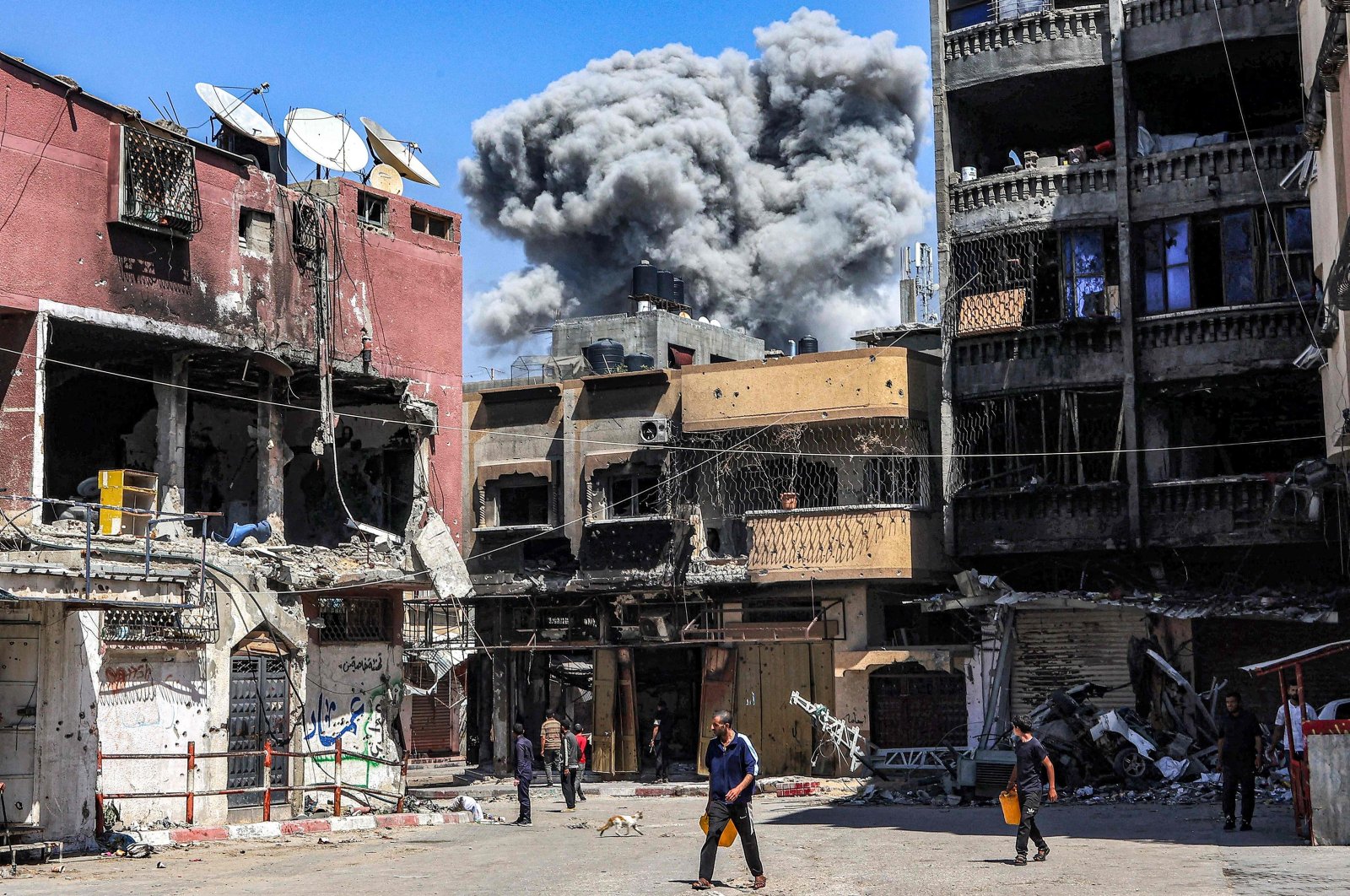Arab League Summit Foresees Unity and Conflict Resolution
The recent Arab League Summit sheds light on a collective vision for the Middle East, emphasizing the importance of unity and strategic diplomacy to address pressing regional challenges and aspirations.
Published May 16, 2024 - 00:05am

Image recovered from dailysabah.com
The Arab League, a time-honored union of Arab states, has consistently strived to solidify Arab solidarity through collaboration on political and economic matters. The recent Summit in Manama was an embodiment of this collective will, seeking to enhance fraternal partnerships and devise inclusive solutions to the array of challenges faced by the region, the foremost being the Palestinian cause. Against the backdrop of global unpredictability and regional tumult, the Arab world's dedication to unity and self-reliance stands as a beacon of hope for a future of peace and sustainable development.
Integral to the Arab League's mission is an unwavering commitment to supporting the people of Gaza amid the ongoing conflict. Concrete steps are anticipated to emerge from these Summits, such as pushing for Palestinian statehood—a stance that asserts the Arab world's resolve against the continued defiance of international laws by Israeli military operations and a direct challenge to the international community's inertness in enforcing a ceasefire.
Another pivotal aspect is the notion of reconstructing Gaza, not solely as a humanitarian effort but as a strategic demand for the recognition of an independent Palestinian state. This approach, led by the Arab quintet involving the United Arab Emirates, Saudi Arabia, Qatar, Jordan, and Egypt, positions financial and political backing as a cardinal aspect of their peacekeeping and geopolitical strategy, essentially linking regional economic stability and growth to peace and statehood prospects.
In alignment with these regional aspirations, Bahrain has signalled a willingness to partake in a multinational Arab force to bolster post-war security setup in Gaza. The intricate diplomatic dance behind this initiative, which sees the involvement of countries that currently have relations with Israel, aims to fill a security vacuum and rebuild Gaza under a collective Middle Eastern oversight, indicating a shift towards multilateralism in pursuit of enduring stability.
As the region contends with these transformational shifts, it is evident that a dynamic re-evaluation is underway. The imperative lies in crafting a vehemently united response to assure not just the resolution of immediate crises but the promotion of a concerted effort to ensure an equitable and just future for all Palestinians, ultimately leading towards the establishment of their own state.
The Arab League's goals are not mere rhetoric; they translate into pragmatic approaches towards resolution of long-standing disputes and practical investment in the future of the Middle East. There is a renewed impulse to address economic disparities within member states, enhancing trade, and investing in a future that privileges technological advancement and youth empowerment. Through initiatives like the Arab Customs Union and the Greater Arab Free Trade Area, the Arab League aims to foster an integrated, thriving economy that can rival global trade blocs.
Alongside its political and economic undertakings, the Arab League also acknowledges urgent environmental and climatic challenges. Member states are increasingly vocal about the critical need for a comprehensive framework to tackle the environmental issues inherently linked to the region's security and prosperity. Strategies for sustainable water usage, renewable energies, and combating desertification are becoming more central in the Arab League's policies, reflecting an understanding that resource scarcity could exacerbate conflict and hinder growth.
Efforts in education reform and cultural exchange are equally pivotal, as they strive to combat extremism and advance a narrative of coexistence amidst diversity. By promoting educational initiatives that emphasize critical thinking and mutual understanding, the League plays a vital role in shaping a knowledgeable and tolerant new generation. Through fostering intercultural dialogue, the Arab League envisages a region rich in diversity yet united in aspiration and purpose.
Furthermore, the League's proactive approach in endorsing women's rights and advocating for female participation in political and economic arenas signals a progressive recognition of gender equality as instrumental for the region's advancement. The involvement of women in peacemaking processes and their essential role in societal development has garnered increasing support among the Arab states, indicating a shift towards inclusivity and equity.
The implications of these collective actions are profound, laying the groundwork for a robust Arab union that is both cognizant of its members' sovereign identities and committed to a shared destiny. Resilient in the face of volatility, the Arab League's dedication to solidarity is poised to redefine regional cooperation, striving for a peace that is both principled and pragmatic, and one that promises a dignified life for every Arab citizen.
The Summit in Manama is therefore a testament to the Arab League's evolutionary path, taking on a multifaceted approach to overcome differences, balance interests, and harness potential. As the League embraces a new era of connectivity and mutual support, the international community watches on, recognizing the potential ripple effects these discussions and decisions may have far beyond the League's own borders. The Arab League stands at a pivotal junction, willing to chart new territories for the greater good of its people and the world at large.








